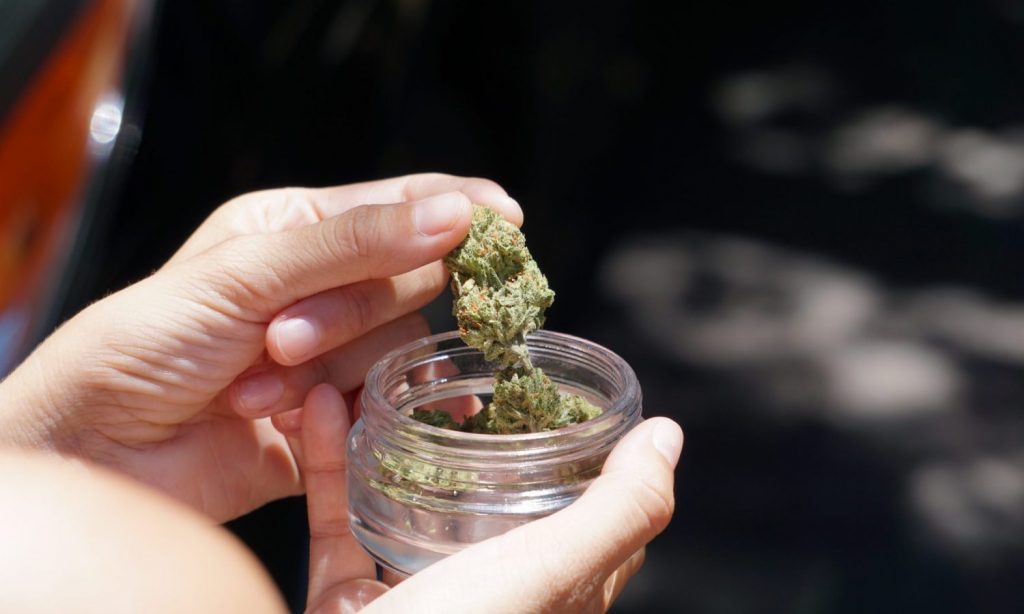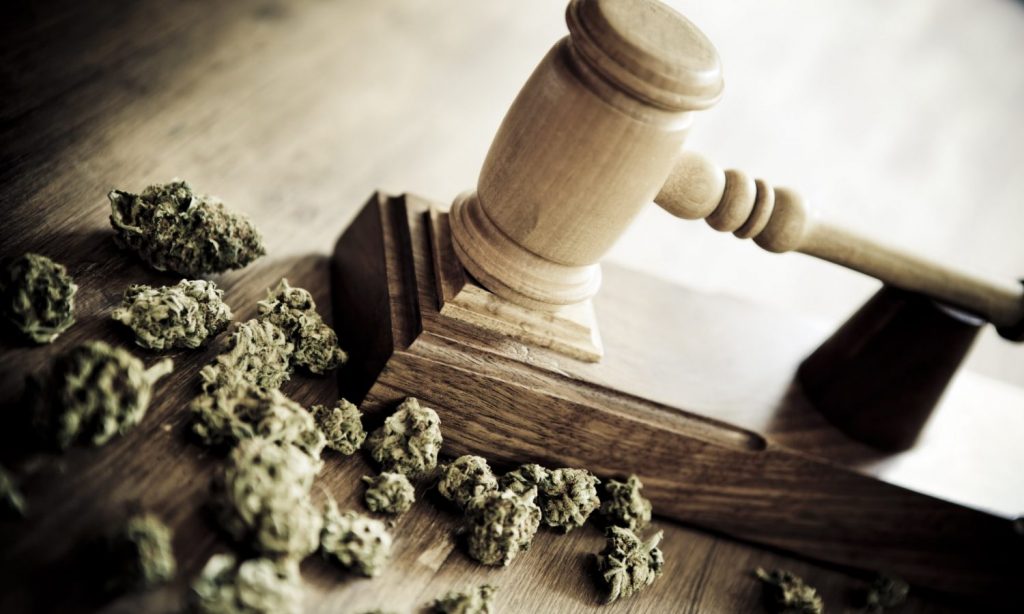If you feel like you’ve been catching a lot of Delta-8 THC content in the media lately, those aren’t just your social media apps hacking your brain. Hemp-derived Delta-8 THC is having a big moment in 2021 in terms of popularity and, most recently, in terms of concerns over legality, safety, and accuracy. This hot new cannabinoid has been branded as “legal marijuana” as the main intoxicating compound in cannabis but one most commonly derived from hemp for commercial use. Social listening data reveals that conversations around Delta-8 grew by a whopping 163% from December 2020 to April 2021, but all is not rosy for this latest trend in cannabis or for companies jumping into production to respond to the surging interest.
Arizona, Colorado, Delaware, and Montana are among the states that have explicitly banned sales of Delta-8 and at least four other states have already removed it from the shelves or otherwise restricted market access. The 2018 Farm Bill categorically removed hemp from the definition of marijuana and modified the definition of tetrahydrocannabinol to exclude tetrahydrocannabinol in hemp. The Drug Enforcement Agency’s interim rule turned that segment of the Farm Bill on its head, declaring derivatives of hemp containing delta-9 tetrahydrocannabinol in excess of .3% THC and all synthetic cannabinoids as controlled substances.
Delta-8, which does not occur in levels sufficient to make commercial products in a cost-effective manner and therefore must be processed from CBD, lands it in the “synthetic” category according to the DEA definition. Some argue that this categorization is flawed given that Delta-8 is a naturally existing phytocannabinoid and that converting CBD to THC occurs via isomerization (the transformation of one isomer into another)—a process that does not fall within the DEA’s definition of a synthetic process. Though solid regulatory footing remains hard to attain as the debate rages on, cannabis companies are forging ahead with new products and campaigns, with mixed results.
Delta 9 or Delta 8?
A recent study by Leafreport found that out of 38 products tested, 63% contained the wrong amount of Delta-8 and more than 50% had illegal (over .3%) levels of Delta-9, containing as much as 15.2% THC. Delta-9 THC and cannabis plants that contain it are federally illegal with the exception of hemp, which contains too little (.3% or less of dry weight) Delta-9 to cause psychoactive effects. 34% of products in the Leafreport study did not clearly list Delta-8 content on the label or online product description, and 68% contained the wrong amount Delta-8 THC. The products most vulnerable to misreported Delta-8 levels were pre-rolls and gummies. Leafreport used a rating system based on the recommendation of industry experts that Delta-8 products have anywhere from 90% to 110% of the amount stated on the label. Using this metric, a full 32% of the products tested merited an “F” (Fail) accuracy rating.
Women Are The Majority of Buyers
The Brightfield Group, a CBD and cannabis consumer data and marketing intelligence company, recently conducted a study to assess Delta-8 consumer, product, and regulatory trends and found that only six months into the Delta-8 trend, 23% of Americans were aware of it, particularly among younger, city-dwelling cannabis users. Brightfield’s numbers show that for a growing segment of the population, Delta-8 is an affordable, convenient way to experience psychoactive cannabis, particularly where Delta-9 is illegal. Women make up the majority (53%) of consumers and curiosity is still the driving factor for those who purchase Delta-8. A full 20% of Delta-8 consumers do not use Delta-9 THC, which points to something unique about Delta-8. Anecdotal evidence suggests that may be a smoother, milder high and fewer side effects like anxiety and paranoia.





